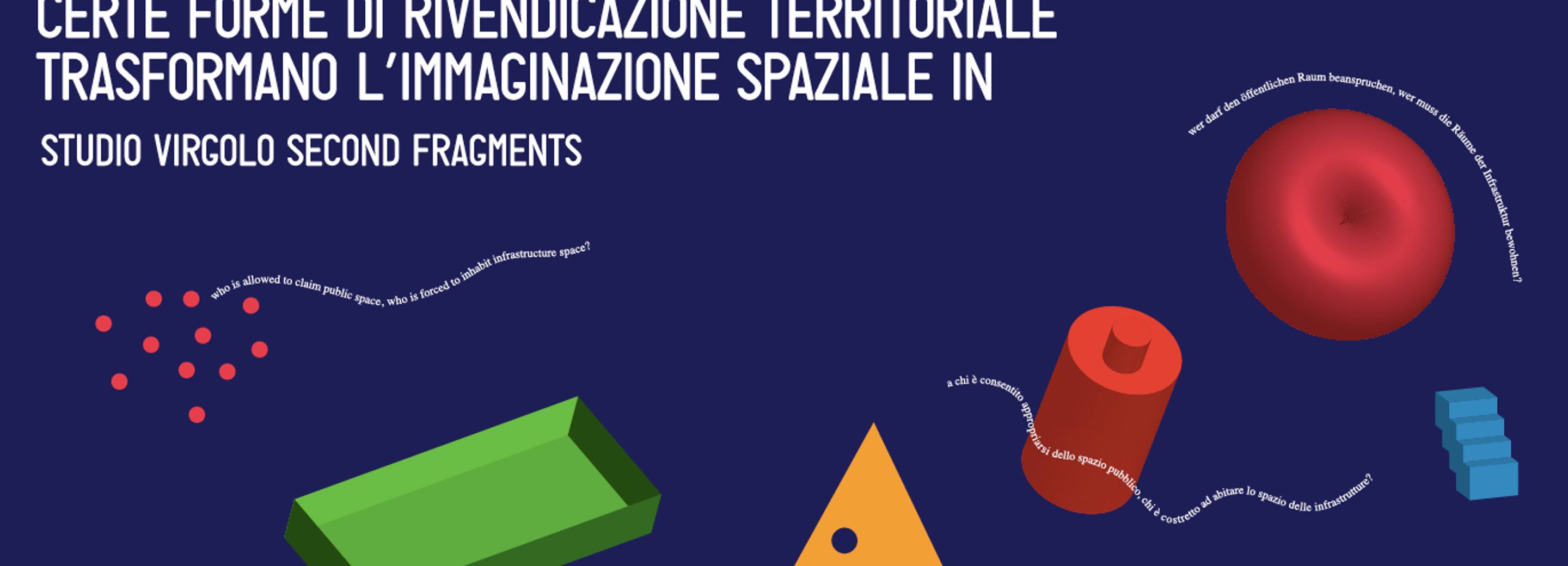RADICAL HOSPITALITYCAN ALTAY
A collaborative project by ar/ge kunst & Lungomare
The Turkish artist Can Altay, is returning to Bolzano for a third encounter in the frame of his long-term residency. Altay is dedicating himself to questions about the city and particularly the Virgolo. In the frame of his stay we realize a range of public activities and interventions.
poster campaign
SOLCH TERRITORIALE ANSPRÜCHE VERWANDELN DAS RÄUMLICHE VORSTELLUNGSVERMÖGEN IN (STUDIO VIRGOLO SECOND FRAGMENTS)
Time: 26 May – 14 June 2015
Location: Bozen / Bolzano
Can Altay’s project continues with what he defines as a second series of fragments of the Studio Virgolo project. The 1948 newspaper article about the “mole people” that – shortly after the WWII – lived in the tunnel that runs through the mountain and was not yet opened to the traffic keeps stimulating the artist’s imagination.
“who is allowed to claim public space, who is forced to inhabit infrastructure space? TUNNEL DWELLERS OF THE 1940S. FUNICULAR STOPS RUNNING. PARTIES AT THE FORMER SOCIAL CLUB. SHOPPING MALLS AND THEME PARKS. ESCAPE ROUTES AND REFUGE SITES.”
Altay occupies the commercial communication surfaces of Bolzano with a series of posters that focus on neglected desires and unfulfilled promises: like advertisements for an imaginary tourism, they function as a campaign on the issues that will be publicly discussed in Lungomare during the conversation of the 12th of June.
The reason that moves the artist to focus the attention on the Virgolo mountain comes also from the global references that such a specific place can engender.
reading group
Time: 9 June 2015, 6 – 8 pm
Location: Park in front of the train station, Bolzano
(in case of rain: Bar Jona)
In the third chapter of Rebel Cities the Marxist geographer David Harvey reads the urban commons as the product of social relations: people living in the city produce urban commons all the time. Gentrification is the process which capitalizes this vitality continuously produced by the city, a process that often is named with the euphemism of “regeneration”. Harvey reads gentrification as a privatization – for the profit of a few – of the vitality produced by a city and its inhabitants, a privatization often instigated by public institutions.
This text can help us exiting the rhetoric of the opposition between “regeneration” and “degradation”: the so-called social disadvantage (disagio sociale) is in fact provoked by the very process of regeneration. The reading of this text will allow us to read the current selling off of public goods and land in Bolzano not as a specifically local but as a global monstrosity.
How to describe the complexity of top-down urban transformations in Bolzano and what are the possibilities of reclaiming as commons those forms of life that as inhabitants of the city we continuously produce?
(The text can be requested at Lungomare.)
panel discussion
CONFLICT OVER SPATIAL IMAGINATION (DEVELOP VIRGOLO?)
Time: 12 June 2015, 7 pm
Location: Lungomare Rafensteinweg 12, Bozen/Bolzano
With: Stefano Novello, Michael Obrist, Huib Haye van der Werf
Sites such as the Virgolo, a mountain in the direct surrounding of Bolzano, bring with them a set of questions in relation to envisioning the future of our cities. The challenge in imagining the future of such places lies in the ways in which (or whether) we can overcome attitudes of conservation as much as neo-liberal commodification of such urban and semi-urban landscapes. These are the two fronts that the battlefield seems to be divided into currently.
This panel seeks to address the spatial imagination over the Virgolo, by scrutinizing the current models and proposals (both the neo-liberal policies and imaginaries over such pieces of land as ‘to be developed’; and its counter-hegemony of a more preservative tone). While choosing to avoid these two positions, the panel will search for possibilites that do not by-pass this conflict over spatial imagination and foresight, but rather look for ways in which the city can allow its inhabitation otherwise, in face of the current constipation over urban future.
Particularities of the Virgolo, its relationship to infrastructural development (tunnels) and the range of spaces and activities that surround it will be given special notice in the search for further possibilities.
The speakers Stefano Novello (Architect, Bolzano), Michael Obrist/Feld72 (Architect, Vienna) und Huib Haye van der Werf (Head of Artistic Program Multiform Institute for Fine Art, Design and Reflection, Maastricht) will shortly present different viewpoints and imaginaries over the Virgolo before the panel will be opened to the audience in a discussion moderated by Can Altay and the curatorial-team.
